Analysts from around the globe say that the two major and devastating earthquakes that hit southeast Turkey and northern Syria on 6 February could change Turkey’s political climate, as the Turkish authorities’ late and inadequate response to the major disaster receives huge backlash from the public.
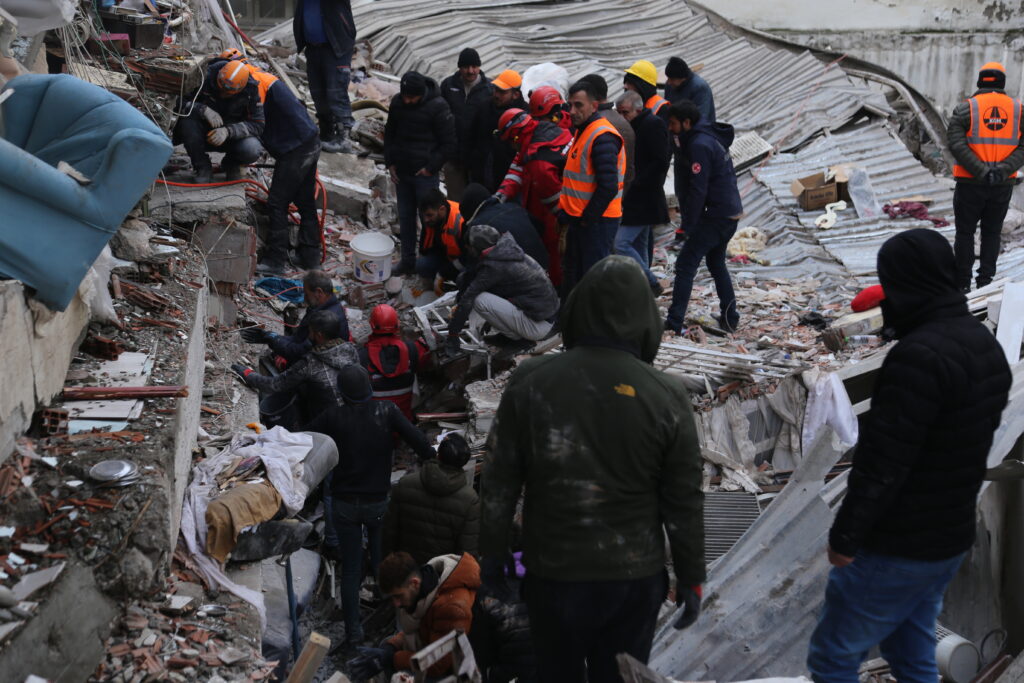
Turkish President Recep Tayyip Erdoğan’s chances of extending his rule with the upcoming elections seem to depend on his handling of the catastrophe, said BBC News’s Europe Editor Paul Kirby in his article published on 8 February.
“Rampant inflation and a cost-of-living crisis has already hit his poll ratings and, as May elections approach, an emboldened opposition has accused him of failing to prepare for Monday’s disaster in a country prone to powerful earthquakes” wrote Kirby, describing the devastating quakes and its aftermath as one of the biggest tests of the Turkish President’s political career.
Kirby points out the opposition leaders’ earlier arrival to the quake-hit area that outpaced Erdoğan, whose disaster response proved to be unprepared and incompetent. “For a pugnacious leader who built a proud record on modernising and developing Turkey” says the BBC Editor, “the loss of so many lives in the rubble of thousands of buildings represents a real threat.”
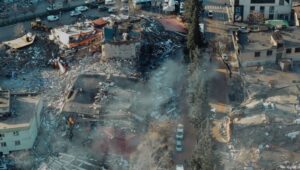
As a handful of construction companies with ties to the government grew powerful during the two-decade reign of Turkey’s ruling Justice and Development Party (AKP), many of their buildings as part of the construction boom encouraged by Erdoğan were razed to the ground by the earthquakes earlier this week, wrote The Guardian’s Ruth Michaelson on Tuesday.
Emphasising that the presidency had opted to focus on control, rather than compassion, the article continues:
“Erdoğan’s refusal to accept criticism of the state’s response has done little to quell growing public anger at a disaster response that has often arrived too late, or in the case of some remote villages, appears yet to have arrived at all. Across southern Turkey – areas traditionally considered bastions of support for the president and his Justice and Development party (AKP) – displaced citizens surviving in freezing conditions complained openly about delays and sleeping in the cold despite the state’s promises. Their increasing discontent represents an unforeseen and major test for Erdoğan’s 20-year leadership, just three months prior to an election expected in May.”
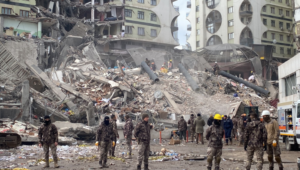
Bloomberg Editor Bobby Ghosh referred to Erdoğan’s centralised authority that has even disrupted civic efforts, let alone responding effectively to the havoc, in his opinion piece titled “Erdogan has undermined Turkey’s earthquake response,”
“Erdogan needs all the help he can get from NGOs, both local and foreign — the very organizations his government has debilitated over the years by enacting laws that expand government control of civil society, restricting financing of NGOs and forcing many to shut down,” Ghosh said.
The resulting fallout will now expose Erdoğan to criticism in the lead-up to the election, wrote Ghosh, as he refers to the Turkish NGOs that are still scrambling to rescue lives in terrible conditions, saying, “When they pause to take a breath, they might wonder how much more assistance they might have been able to provide — and how many more lives they might have saved — if presidential paranoia hadn’t weakened their hands.”
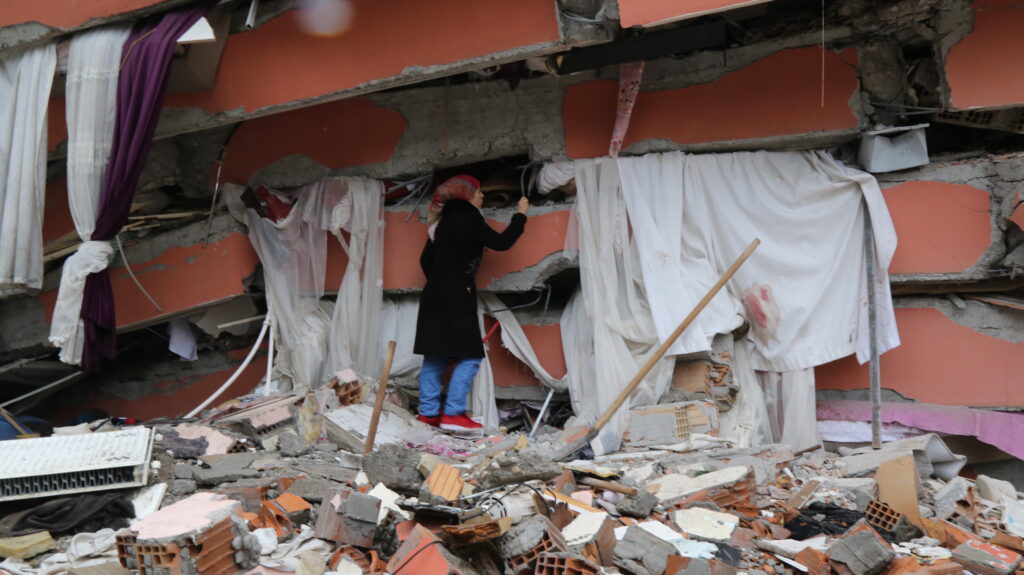 In his article published in Politico on 7 February, Jamie Dettmer compares the quake-destroyed cities and Erdoğan’s situation with the outcomes of the 1999 İzmit earthquake, which struck near İstanbul with a magnitude of 7.4 and killed around 20,000.
In his article published in Politico on 7 February, Jamie Dettmer compares the quake-destroyed cities and Erdoğan’s situation with the outcomes of the 1999 İzmit earthquake, which struck near İstanbul with a magnitude of 7.4 and killed around 20,000.
Bülent Ecevit, Turkey’s then prime minister, was numbed by the scale of the destruction, while his “ministers blamed the press, accusing journalists of distorting events and maligning the government”, Dettmer said, quoting the journalist Stephen Kinzer’s article published two years after the disaster, which eventually paved the way for the government’s downfall, to be replaced by Erdoğan’s AKP in 2002.
“Erdoğan appears determined to avoid the same mistakes, but that doesn’t mean that there aren’t major potential pitfalls for him” the veteran journalist said, adding “But whether he can escape the political fallout remains to be seen.”
Dettmer, likewise, mentions the uncontrolled construction craze of the last 20 years which has been most intense in the quake-hit cities, commenting, “If the newer buildings and apartment blocks are found to have been disproportionally more vulnerable than older buildings, then Erdoğan’s party could be blamed.”
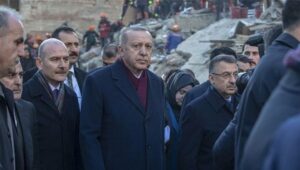 The rush to save lives suddenly overtook many issues expected to have defined the Turkish elections, such as sky-high inflation and “regional security”, wrote Reuters’s Marc Jones on Thursday, adding “But by the time elections come around voters will be judging the competence of the government’s actions.”
The rush to save lives suddenly overtook many issues expected to have defined the Turkish elections, such as sky-high inflation and “regional security”, wrote Reuters’s Marc Jones on Thursday, adding “But by the time elections come around voters will be judging the competence of the government’s actions.”
Saying that Turkey’s earthquake has caused an outpouring of concern by international investors, Jones quoted the words of Christian Kopf, a Union Investment professional, that the earthquake is a “big wild card” for Erdoğan. Kopf also recalls 1999’s quake and says:
“There is the view that voters unite behind the government after a natural disaster, but that wasn’t the case 21 years ago and it might not be the case again.”










